
Polypodium species: Doryopteris species - Plant
(MRP Inclusive of all taxes)
- Shipping ₹79 for entire order
- Dispatch in 7 days
- Country of origin: India

(MRP Inclusive of all taxes)
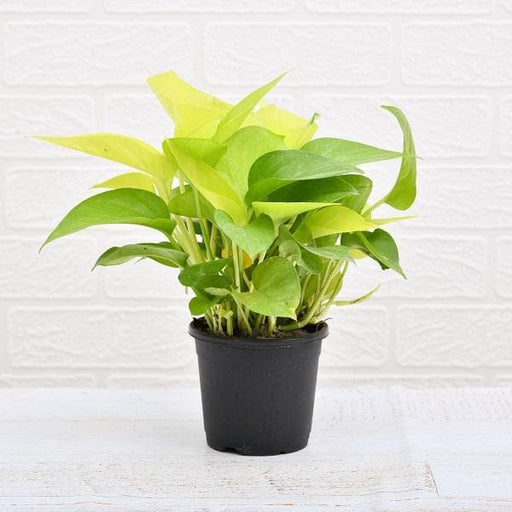 Save 29%
Save 29%
Air Purifier Money Plant with Pot The Air Purifier Money Plant, also known as Pothos or Epipremnum aureum, is a stunning indoor plant that...
View full details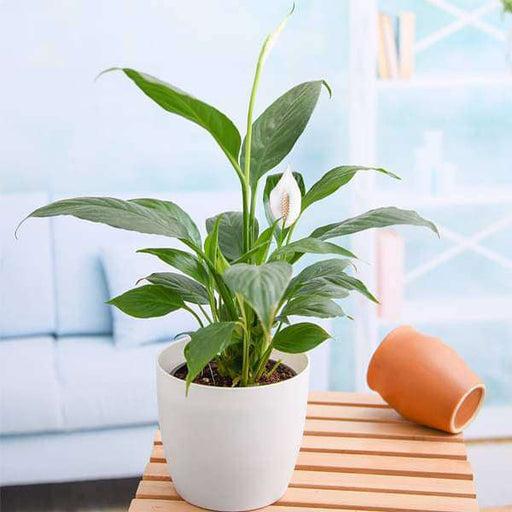
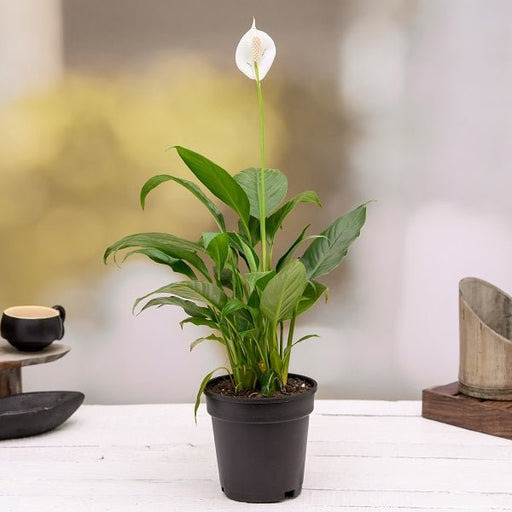 Save up to 15%
Save up to 15%
Peace Lily, Spathiphyllum - Plant The Peace Lily, scientifically known as Spathiphyllum, is a stunning houseplant celebrated for its elegant white...
View full details
 Save 25%
Save 25%
Jasminum sambac, Mogra, Arabian Jasmine - Plant Jasminum sambac, commonly known as Mogra or Arabian Jasmine, is a fragrant flowering plant...
View full details
 Save 18%
Save 18%
Combo Constituents Includes the Parijat Tree (Night-Flowering Jasmine), a culturally significant plant with fragrant flowers. Description The Pari...
View full details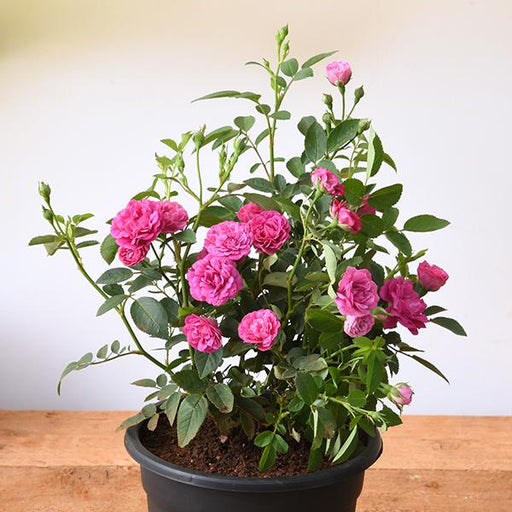
 Save 25%
Save 25%
Miniature Rose, Button Rose (Any Color) - Plant The Miniature Rose, also known as the Button Rose, is a charming and compact flowering plant that ...
View full details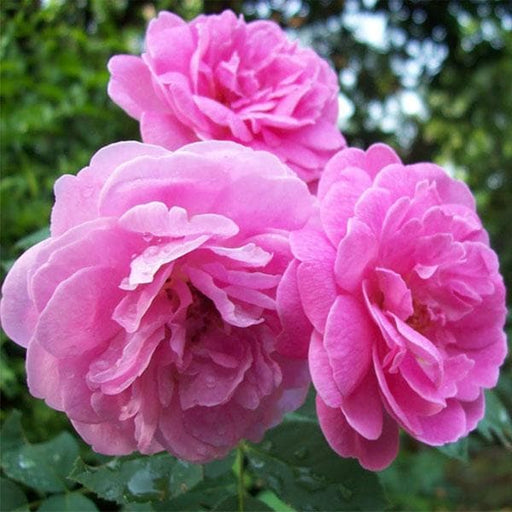 Save 25%
Save 25%
Damascus Rose, Scented Rose (Any Color) - Plant The Damascus Rose, also known as Rosa damascena, is a timeless symbol of beauty and romanc...
View full details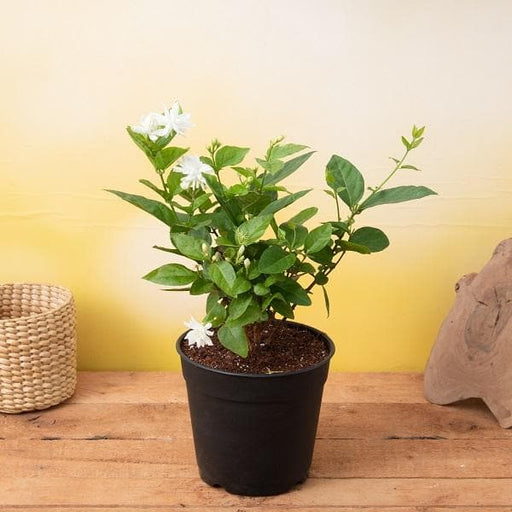
 Save 17%
Save 17%
Beautiful Fragrant Mogra, Arabian Jasmine Plant with Pot The Beautiful Fragrant Mogra, also known as Arabian Jasmine (Jasminum sambac), is...
View full details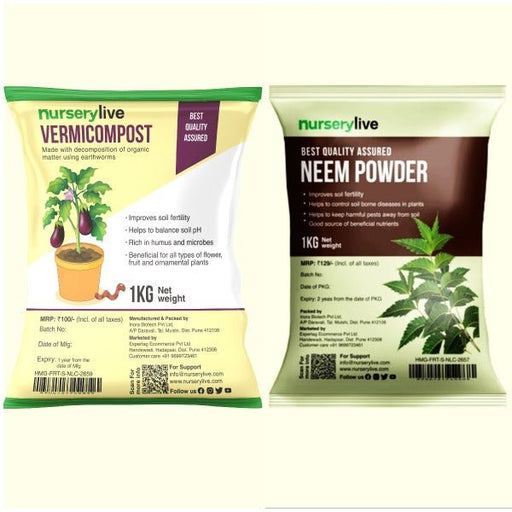 Save 15%
Save 15%
Pack of Vermicompost and Neem Cake for House Plants Transform your indoor garden with our premium Pack of Vermicompost and Neem Cake, spec...
View full details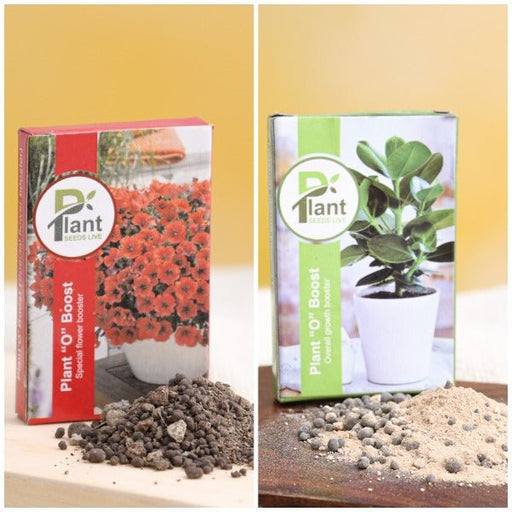
Pack of Plant Growth and Flower Boosters Unlock the full potential of your garden with our Pack of Plant Growth and Flower Boosters! This ...
View full details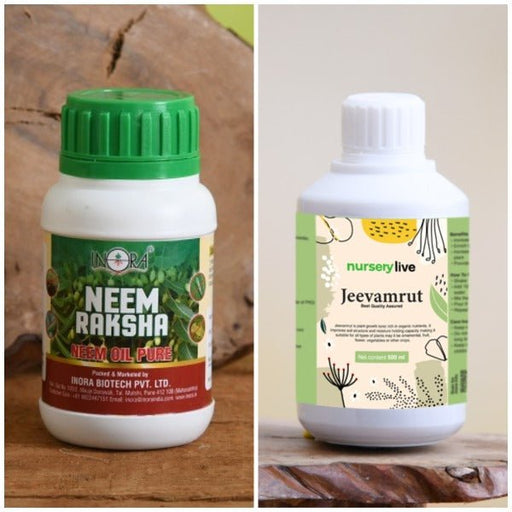 Save 38%
Save 38%
Combo of Jeevamrut and Neem Raksha for Easy Growth and Protection of Houseplants Transform your indoor garden with our exclusive combo of ...
View full details Save 22%
Save 22%
Plant Nutrients Kit (Pack of 16) for a Healthy Garden Transform your garden into a lush paradise with our Plant Nutrients Kit, featuring 1...
View full details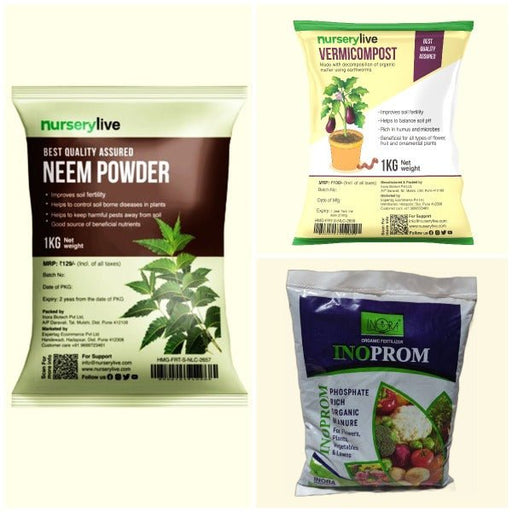 Save 16%
Save 16%
Combo of Top Plant Fertilizers Elevate your gardening game with our exclusive Combo of Top Plant Fertilizers, featuring two bags of premiu...
View full details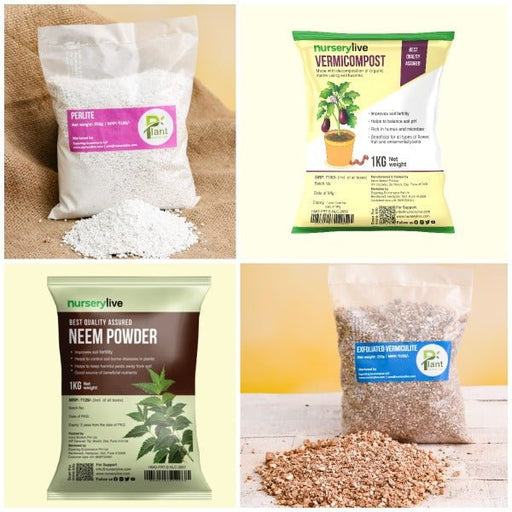 Save 24%
Save 24%
Pack of 4 Additives to Make Soil Healthy and Nutrient Rich Transform your garden into a thriving ecosystem with our Pack of 4 Additives de...
View full details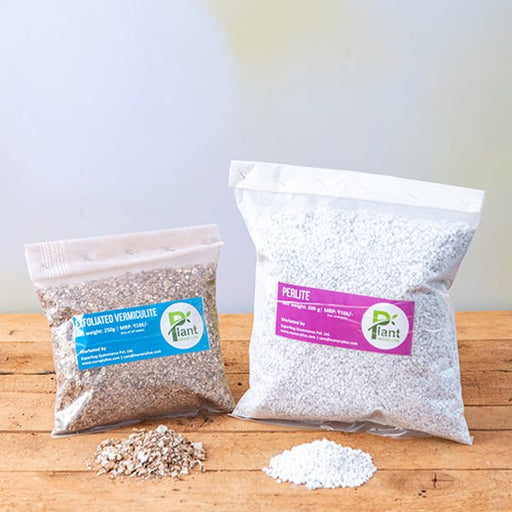 Save 30%
Save 30%
Transform your gardening experience with our premium Combo of Perlite and Vermiculite. This unique blend is designed to enhance soil aeration and ...
View full details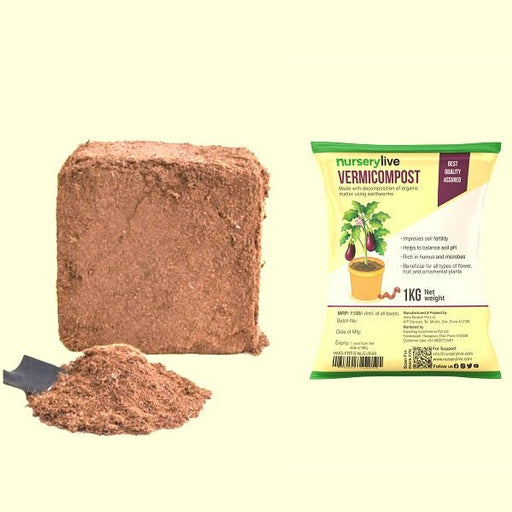 Save 27%
Save 27%
Combo of 2 Vermicompost and Cocopeat - Enrich Your Soil Naturally! Transform your garden into a thriving ecosystem with our Combo of 2 Ver...
View full details
 Save 35%
Save 35%
Best 6 Plants for Perfect Indoor Garden Transform your living space into a lush oasis with our curated collection of the Best 6 Plants for a...
View full details
 Save up to 50%
Save up to 50%
Mini Succulent Garden Pack Transform your space with our Mini Succulent Garden Pack, featuring a delightful collection of 4 any variety beautiful s...
View full details
 Save 30%
Save 30%
5 Best Fragrant Plants Transform your garden or indoor space into a fragrant paradise with our curated selection of the 5 Best Fragrant Plants. Th...
View full details
 Save 24%
Save 24%
Set of 2 Bonsai Looking Grafted Adeniums Transform your indoor or outdoor space with our exquisite Set of 2 Bonsai Looking Grafted Adenium...
View full details Save 45%
Save 45%
Top 4 Die Hard Succulents Pack Transform your indoor or outdoor space with our Top 4 Die Hard Succulents Pack, featuring a curated selecti...
View full details
 Save 30%
Save 30%
5 Best Indoor Plants Pack Transform your living space into a lush oasis with our '5 Best Indoor Plants Pack.' This carefully curated collection fe...
View full details
 Save 25%
Save 25%
Set of 4 Evergreen Air Purifier Plant Pack Transform your indoor space into a lush, green oasis with our Set of 4 Evergreen Air Purifier Pla...
View full details| SrNo | Item Name |
|---|---|
| 1 | Polypodium species: Doryopteris species - Plant |
The Doryopteris species, a member of the Polypodium family, is a stunning fern known for its unique fronds and adaptability. This evergreen plant thrives in a variety of environments, making it a popular choice for both indoor and outdoor gardens. With its lush, green foliage, it adds a touch of elegance to any space while also contributing to air purification.
What makes Doryopteris special is its resilience and ability to thrive in low-light conditions, making it an ideal choice for beginners and seasoned gardeners alike. Its unique morphology, characterized by its broad, leathery fronds, sets it apart from other ferns, providing a striking visual appeal.
One of the standout features of Doryopteris is its ability to adapt to various humidity levels, making it suitable for diverse climates. This fern not only enhances the aesthetic of your garden but also plays a vital role in maintaining ecological balance by providing habitat and food for various species.
If you think caring for a Polypodium species is as easy as watering a cactus, think again! These ferns are the divas of the plant world, requiring just the right amount of humidity, light, and love. They thrive in well-draining soil and prefer a cozy spot with indirect sunlight. Overwatering? That’s a big no-no! Treat them like royalty, and they’ll reward you with lush, green fronds that will make your friends green with envy.
Doryopteris species are the cool kids in the fern family, flaunting their unique characteristics like a peacock showing off its feathers. With their distinctive fronds and striking appearance, they can turn any dull corner into a tropical paradise. These ferns are not just pretty faces; they also have a knack for thriving in various environments, making them the versatile stars of your indoor jungle.
Want to multiply your Polypodium species like rabbits? Propagation is the name of the game! You can achieve this through division or spores, but be prepared for a little patience. It’s like waiting for a fine wine to age; good things come to those who wait. Just remember to give your new plants the same love and care as their parent, and soon you’ll have a mini fern army ready to take over your home.
If you want your Doryopteris species to flourish, you need to create their dream environment. Think of it as setting up a five-star resort for your ferns. They love humidity, so misting them regularly is a must. Keep them in a warm spot, away from harsh direct sunlight, and watch them thrive. It’s all about finding that perfect balance—like a tightrope walker, but with plants!
Just when you think your Polypodium species are living their best life, here come the pests! Aphids, spider mites, and mealybugs can crash the party faster than an uninvited guest. Keep an eye out for these little troublemakers and act quickly to evict them. A gentle wash with soapy water or neem oil can send them packing, ensuring your ferns remain the belle of the botanical ball.
Feeding your Doryopteris species is like giving them a gourmet meal; they’ll thrive on the right nutrients! Use a balanced, diluted fertilizer during the growing season, and watch them perk up like they just had a double shot of espresso. But don’t overdo it—too much fertilizer can lead to a plant hangover. A little goes a long way, so treat them to a light meal and let them shine.
If you think all plants are sun worshippers, think again! Polypodium species prefer a more laid-back approach to light. They thrive in bright, indirect sunlight, making them the introverts of the plant world. Too much direct sun can scorch their delicate fronds, so find them a cozy spot where they can bask without burning. It’s all about that perfect light balance—like finding the right playlist for a chill afternoon.
Watering your Doryopteris species is an art form, not a science. These ferns like their soil to be consistently moist but not soggy—think of it as a delicate dance. Too little water, and they’ll wilt like a sad flower; too much, and they’ll drown in their own drama. Check the top inch of soil before watering, and let your ferns guide you. It’s all about listening to their needs, like a good friend who knows when you need a coffee break.
The right soil is like a comfy bed for your Polypodium species. They prefer a well-draining mix that allows their roots to breathe while retaining some moisture. A blend of peat, perlite, and orchid bark can create the perfect environment for these ferns to thrive. Think of it as their personal spa treatment—soft, supportive, and just the right amount of cozy.
Doryopteris species are not fans of extreme temperatures; they’re more like Goldilocks, seeking that “just right” climate. They thrive in temperatures between 60°F and 75°F, so keep them away from chilly drafts and scorching heat. If you can keep your home comfortable, your ferns will reward you with vibrant growth and lush foliage. It’s all about creating a cozy atmosphere—like a warm hug for your plants.
Fungal issues can be the drama queens of the plant world, and your Polypodium species are no exception. Keep an eye out for signs of trouble, like discolored spots or wilting fronds. A little preventive care goes a long way—ensure good air circulation and avoid overhead watering. If a fungal issue does arise, don’t panic! A fungicide or a homemade remedy can help restore peace in your fern kingdom.
Polypodium species: Doryopteris species are charming ferns that love to flaunt their lush, green fronds. These beauties thrive in humid environments, making them the perfect houseplant for those who want to bring a slice of the rainforest indoors. Just remember, they prefer to keep their feet wet—no dry toes allowed!
Caring for these ferns is like nurturing a diva; they crave humidity and indirect light. Keep the soil consistently moist but not soggy, and mist them regularly. They’ll reward you with vibrant foliage that’ll make your friends green with envy. Just don’t forget to whisper sweet nothings to them!
No thanks! It’s like a bad sunburn waiting to happen. Place them near a window with filtered light, and they’ll be as happy as a clam—well, a fern, really!
Watering is an art form with these ferns. Aim for a consistent moisture level, watering when the top inch of soil feels dry. Think of it as giving them a refreshing drink—just don’t drown them! They prefer a light sip over a full-on splash party.
These ferns are tropical at heart, enjoying temperatures between 60°F to 75°F. They’re not fans of chilly drafts or extreme heat—no one likes a hot and bothered fern! Keep them cozy, and they’ll thrive like the divas they are.
Absolutely! Propagation is like sending your fern on a little adventure. You can do this through division or spores. Just make sure to give them a loving home afterward. Soon, you’ll have a mini fern army ready to take over your plant kingdom!
Good news for pet parents! Polypodium species: Doryopteris species are non-toxic to cats and dogs. So, you can let your furry friends roam free without worrying about them munching on your leafy companions. Just keep an eye on them; they might still be curious about those fronds!
These ferns can attract pests like spider mites and mealybugs, but don’t panic! A gentle wash with soapy water or neem oil can send those uninvited guests packing. Keep an eye out, and your ferns will remain the belle of the botanical ball!
Fertilizing is like giving your ferns a spa day! Use a balanced, diluted liquid fertilizer every 4-6 weeks during the growing season. Just remember, less is more—over-fertilizing can lead to burnt fronds. Treat them right, and they’ll flourish like the stars they are!
Absolutely! These ferns are indoor royalty, thriving in pots with the right humidity and light. They’ll add a touch of elegance to your space, making your home feel like a tropical paradise. Just keep them pampered, and they’ll be the life of your indoor jungle!
These ferns prefer a well-draining, organic potting mix that retains moisture without turning into a swamp. Think of it as their comfy bed—soft, cozy, and just the right amount of support. A mix of peat, perlite, and pine bark will have them feeling right at home!